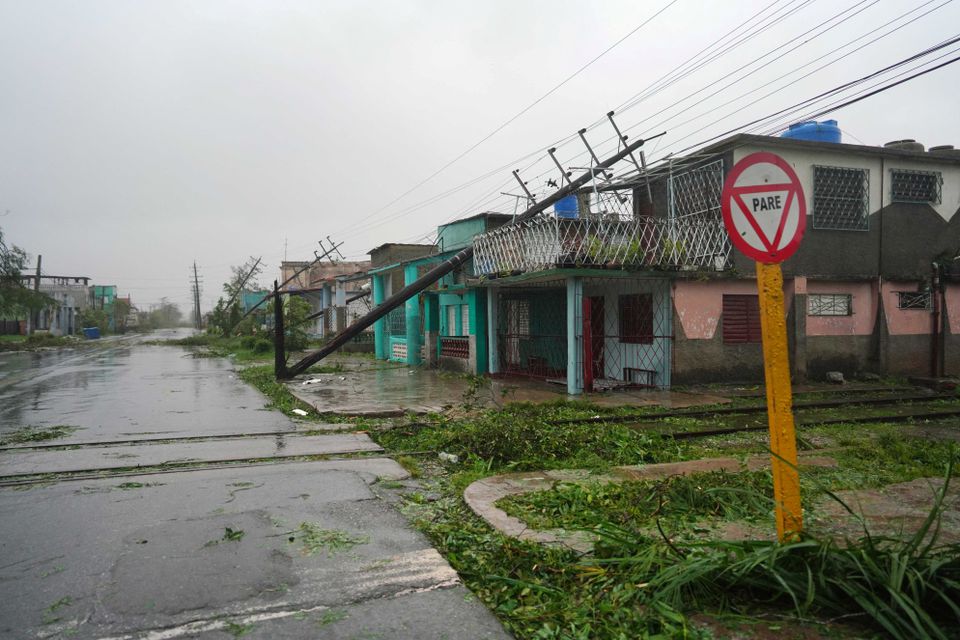In this article, LSE ID alum Tobias Wuttke argues that a fundamental debate in development studies must be about reconciling catch-up industrialisation with the insights of de-growth and ecological economics. Wuttke builds on his argument from a previous article where he questions the viability of de-growth as a concept in light of the climate crisis.
It is time to move away from simple claims like “De-growth is unrealistic”, “We need growth” and “Technological ingenuity will save us”. Such basic claims and narratives are no longer acceptable and there needs to be a deeper engagement with the debate. The evidence has piled up against those claims. If we continue with business as usual, absolute decoupling of carbon emissions from GDP growth will not happen. In addition to the evidence, the literature on de-growth has evolved significantly. Under the banner of ecological economics there is a deep understanding of how our economic system must be embedded in nature rather than seek to dominate nature. De-growth is not only focused on the relationship between GDP and carbon emissions, but it is focused on material throughput. Global warming is not the only problem. There are in fact several other planetary boundaries that we are about to overstep with our global way of production and consumption, including biodiversity loss, ocean acidification, agricultural soil depletion and freshwater overuse. There is also no evidence indicating that we are on the way to decoupling material throughput from GDP growth. So, what’s the solution? Some proponents of de-growth argue that we have to entirely overhaul capitalism and abandon the notion of economic growth as an indicator of progress. I do not think that’s the way to go.
There are some contributions in the de-growth literature in which the role of economic growth in development is completely negated and it is argued that growth does more damage than good for people living in poor countries who should keep their traditional economic systems based on “frugality and sufficiency”. These kinds of arguments are incompatible with the fact that economic growth has historically been the main force to improve people’s well-being. Jason Hickel in his recent book is a bit more nuanced. But while Hickel is right when he emphasizes that there is no automatic relationship between growth and improved well-being and that countries can improve people’s living conditions even at comparably low GDP p.c. levels (his favorite example is Costa Rica), he leaves out that countries have historically needed sustained productivity and output growth to kick-start the important dynamics of structural transformation and developing their own innovation and technological capacities.
The insights from ecological economics that have led a large number of scholars to contemplate de-growth are fundamental and they must change how we think about the economy and the science of economics. Keeping global warming below 1.5 degrees requires a full transition to renewables, while at the same time lowering production and consumption in the advanced countries. A cap on annual resource use and waste, as suggested by Hickel, looks like a reasonable idea. On the other hand, the expansion of output and improvements in productivity are needed in developing countries to move their economies forward and to improve people’s living standards. There is a trade-off at play when juggling the expansion of productive activities and the adherence to planetary boundaries. In light of this, it seems to me that reconciling the insights from de-growth and those from the literature on catch-up industrialization must be one of the fundamental debates in development studies in the coming decades.
So, what to do? One of the more promising starting points seems to be trying to identify the sectors and activities where output and productivity growth can be decoupled from material throughput. These sectors might also provide interesting leapfrogging opportunities for developing countries. After all, I have serious doubts whether allowing developing countries to grow while enforcing de-growth in advanced countries – a common proposal of the more nuanced de-growers – can be implemented in practice. The global economy is interdependent. The East Asian Tigers arguably grew based on the consumption in the West (at least exports played an important role in their sustained catch-up attempt). A focus on sectors instead of countries is more promising. One core question that emerges here is whether renewable energy systems and electric vehicles, two key pillars that our hope for green growth relies on, can be produced in a sustainable way.
That their carbon footprint is much more favorable to the alternative forms of energy production and traditional internal combustion engine vehicles has been shown, but what about their material impact? The situation here is more complicated. A World Bank report from 2017 finds that “the technologies assumed to populate the clean energy shift […] are in fact significantly more material intensive in their composition than current traditional fossil-fuel-based energy supply systems.” A reduction in the number of used and annually manufactured vehicles, even if they are electric, will be inevitable if we do not want to overstep planetary boundaries. But it is also part of the truth that it is extremely difficult to predict material requirements far into the future, since intra-technology developments determine which metals will be needed. There are different solar cell technologies or wind turbine technologies with vastly different material requirements. What the World Bank report does not consider in its calculations are efficiency gains in the material use for production as well as metal recycling rates. Both are assumed to be zero. More optimistic analysts argue that the efficiency gains and the recycling opportunities are so large in renewables and electric cars that we will be able to stay within planetary boundaries if the right policies supporting the development of a circular economy are implemented.
In a way, the general broad-brush arguments in favour of de-growth are as unhelpful as the broad-brush arguments against it. What is needed is a deep dive into the carbon emissions and material demand implications of different technology choices. And then, the implications of the material demand for the planetary boundaries must be assessed after which a grounded decision can be made. There is a sacrifice we are making once we are deciding against the expansion of output in a certain sector, especially when it affects developing countries and the development of their production systems. There are positive economic development effects of the expansion of productive activity, which the proponents of de-growth tend to deny or neglect. But on the other hand, there are important planetary boundaries that need to be protected. And this is what the proponents of a continuation of business-as-usual with small tweaks pass over. The situation is so that we cannot ignore the alarming evidence that points to a need for a transformation of how our economies work. But we also need to point out where decoupling opportunities lie and where output growth is still possible. After all, this is the much more compelling narrative than all-encompassing de-growth, especially when considering that the latter is extremely unlikely to be implemented in time.
The views expressed in this post are those of the author and in no way reflect those of the International Development LSE blog or the London School of Economics and Political Science.





